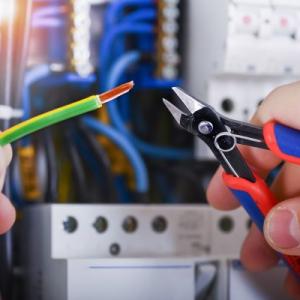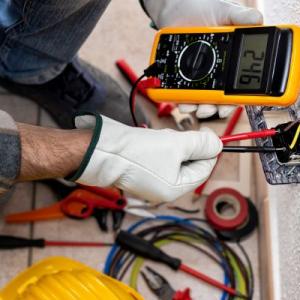Electrical Wiring: Vero Beach
Electrical Wiring in Vero Beach
Get help with Electrical Wiring in Vero Beach. Fill out the form above and we will connect you with local Vero Beach pros. Electrical wiring is an essential service that offers numerous advantages for both residential and commercial properties. By investing in electrical wiring, you can ensure a safe and reliable power supply throughout your space. This helps to prevent electrical hazards, such as short circuits or electrical fires, which can be detrimental to your property and the people within it. Additionally, electrical wiring enables efficient distribution of electricity, ensuring that all your electrical devices and appliances function optimally. With proper electrical wiring, you can enjoy uninterrupted power supply, increased energy efficiency, and the convenience of multiple outlets for your various electrical needs.Electrical Wiring FAQ
Q: What Are The Different Types Of Electrical Wiring Used In Residential Buildings?
Answer: The different types of electrical wiring used in residential buildings include non-metallic sheathed cable (NM), armored cable (AC), conduit wiring, and knob-and-tube wiring (KT).Q: How Do I Determine The Right Wire Gauge For Different Electrical Circuits?
Answer: To determine the right wire gauge for different electrical circuits, you need to consider the current requirements of the circuit and the length of the wire run. Use a wire gauge chart or an online calculator to find the appropriate wire gauge based on these factors. It's important to choose a wire gauge that can handle the maximum current without overheating.Q: What Are The Safety Precautions To Follow When Working With Electrical Wiring?
Answer: When working with electrical wiring, it is important to follow these safety precautions: 1. Always turn off the power: Before starting any work, make sure to turn off the power to the circuit you are working on at the main electrical panel. 2. Use proper protective gear: Wear safety goggles, gloves, and non-conductive footwear to protect yourself from electrical shocks and potential hazards. 3. Test for live wires: Use a voltage tester to check if wires are live before touching them. Never assume that a wire is safe to touch. 4. Avoid water and damp areas: Keep your work area dry and avoid working on electrical wiring in wet or damp conditions to prevent electrical shock. 5. Use insulated tools: Ensure that all tools you use are insulated and in good condition to minimize the risk of electrical shock. 6. Follow electrical codes and regulations: Familiarize yourself with local electrical codes and regulations to ensure that your work meets safety standards. 7. Do not overload circuits: Avoid overloading circuits by distributing electrical loads evenly and using appropriate circuit breakers. 8. Seek professional help if needed: If you are uncertain or uncomfortable with any electrical work, it is best to seek help from a qualified electrician. Remember, electrical work can be dangerous, so always prioritize safety and take necessary precautions to protect yourself and others.Q: Can I Install Electrical Wiring In My Home Myself Or Should I Hire A Professional Electrician?
Answer: It is strongly recommended to hire a professional electrician to install electrical wiring in your home. Electrical work can be complex and dangerous, and it requires expertise and knowledge to ensure safety and compliance with building codes. A licensed electrician will have the necessary skills and experience to handle the job properly, minimizing the risk of electrical hazards and ensuring the work is done correctly.Electrical wiring refers to the system of conductors, cables, and devices used to distribute electricity in buildings, homes, and other structures. It is an essential component of any electrical system, allowing the safe and efficient transmission of electrical power to various outlets, appliances, and fixtures. Electrical wiring consists of copper or aluminum wires that are insulated and protected by sheathing or conduit to prevent electrical shocks and fires. It is typically installed by trained electricians and follows specific codes and regulations to ensure safety. Proper electrical wiring is crucial for the functioning of lighting, heating, cooling, and other electrical systems in a building.


